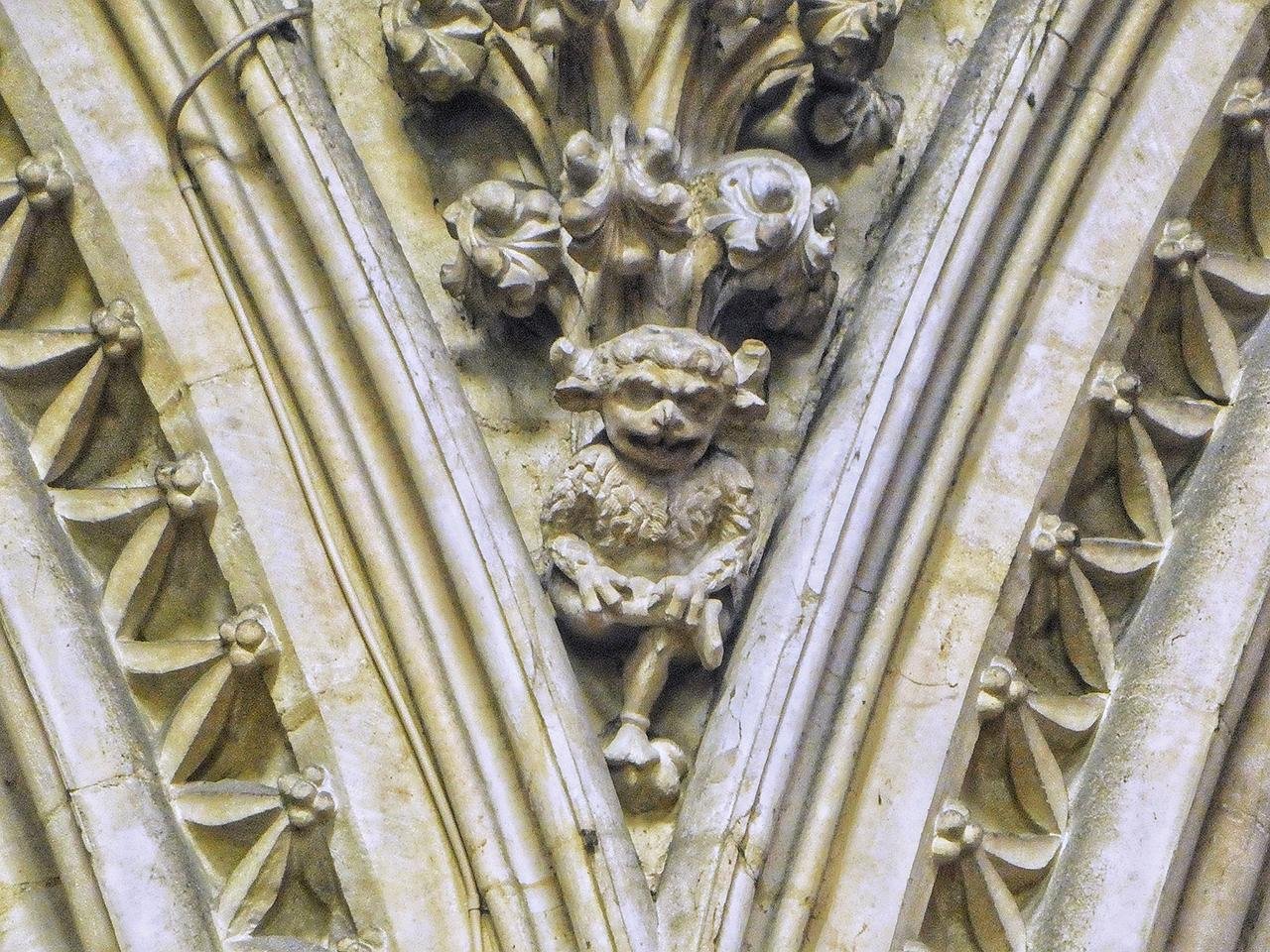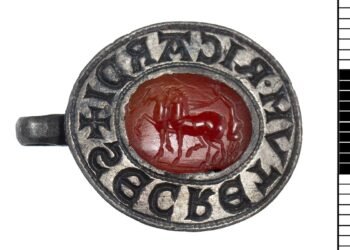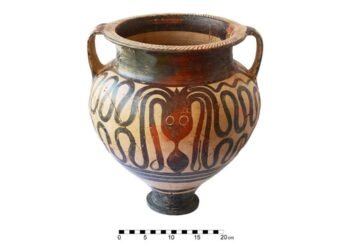A couple residing in Lincoln, England, stumbled upon a remarkable piece of history while tending to their home on Vicar’s Court.

Tracy and Rory Vorster were cleaning their bathroom when Rory made a startling discovery: a trapdoor above the toilet, concealed beneath a houseplant. Intrigued, Rory lifted the trapdoor, revealing a large stone slab featuring a carved face resembling the famed Lincoln Imp. This grotesque face, with its open mouth suggesting a drain or perhaps a medieval urinal, fascinated the Vorsters.
The Lincoln Imp, a legendary figure in local folklore, holds significant cultural importance in Lincoln. Carved into the upper parts of Lincoln Cathedral, the imp is believed to have been created in the 13th century, quickly becoming a beloved symbol of the city.
Legends surrounding the imp’s mischievous antics and encounters with angels have endured through the centuries, cementing its place in Lincoln’s heritage.
Experts from the Lincoln Civic Trust examined the stone slab, suggesting that it likely served as an elaborate drain or part of an early plumbing system dating back to the mid to late 14th century. This assessment aligns with historical records documenting similar features in houses around Lincoln.
Mrs Vorster remarked, “You look at the outside of the house and that is historical enough, but to now find something inside is amazing.” Mr Vorster added: “The whole of the house has kind of a hollow walling, so we immediately thought there could be more. In fact, we’re almost certain now. The couple’s excitement was palpable as they shared their find with the local community, igniting a wave of interest and speculation on social media platforms.
The Vorsters’ home, situated in Vicar’s Court, has a history dating back over 700 years, with remnants of its past intertwined with Lincoln Cathedral’s legacy. Part of the building was demolished during the English Civil War, but sections still stand today as rental homes owned by the cathedral.
“We were very surprised to find it but not shocked as the house is so old and interesting that it’s kind of expected to find amazing things.” Mrs Vorster told LincolnshireLive.
More information: BBC News






















